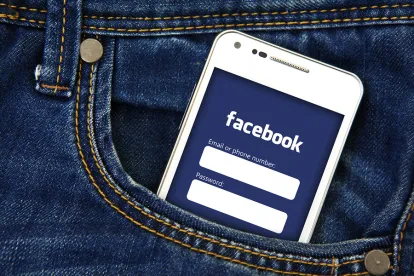Back in August 2014, we discussed an NLRB decision, which concluded that employees’ use of Facebook’s “like” button can constitute protected concerted activity under Section 7 of the National Labor Relations Act and that the employer’s termination of the employees was an unfair labor practice under the Act. The Second Circuit recently affirmed the NLRB’s decision.
As a refresher, the employer (Triple Play Sports Bar and Grille) had terminated two employees who posted on Facebook in response to an ex-employee’s post complaining Triple Play’s owners had messed up the ex-employee’s tax paperwork. Triple Play Sports Bar and Grill, 361 NLRB No. 31 (2014). One of the terminated employees had posted a comment that referred to an owner as an “a**hole” and the other terminated employee had “liked” the ex-employee’s tax paperwork complaint post. The NLRB determined that that the terminations were an unfair labor practice because they were made in response to the employees’ protected, concerted activity.
On appeal to the Second Circuit, Triple Play contended that the two terminated employees’ posts contained obscenities that were viewed by customers; and, therefore, the posts were so disloyal and or defamatory as to lose the protection of the NLRA under the Second Circuit’s prior decision in NLRB v. Starbucks Corp., 679 F.3d 70, 77 (2d Cir. 2012) (remanding an NLRB Order for reconsideration of the proper standard to apply when analyzing an employee’s utterance of obscenities in the presence of customers). The Second Circuit disagreed.
In addressing Triple Play’s contention that the Starbucks decision suggested “most or all” employees using obscenities in the workplace in the presence of customers would lose NLRA protection, the Second Circuit clarified that it had remanded the Starbuckscase only because the Board decision there did not reflect any analysis or explanation for seemingly disregarding the employer’s concerns regarding the employee’s use of obscenities in front of customers. In the present case, the Second Circuit noted that the Board in fact had relied on prior Board and court precedents to conclude the terminated employees did not engage in disloyal conduct.
The Second Circuit also explained that to accept Triple Play’s contention that Starbucks should apply because the Facebook posts took place in the presence of customers (i.e., publicly online) “could lead to the undesirable result of chilling virtually all employee speech online” as almost all employee Facebook posts have at least some potential to be viewed by customers.
Although not favorable for employers, the Second Circuit’s decision should be viewed as having limited applicability. The decision did not establish that an employee’s use of Facebook’s “like” button always constituted protected activity or that employees could state obscenities in front of customers in any situation with impunity. Rather, the decision was limited to the facts of this situation, in which it was undisputed that the ex-employee’s original post regarding the tax paperwork complaint was NLRA-protected activity.
Therefore, as we previously have emphasized, the primary takeaway for employers is that they should continue to exercise caution before disciplining employees who either complain or endorse complaints about working conditions or terms on social media, particularly when those complaints are directed at management (and not customers or vendors).



 />i
/>i

